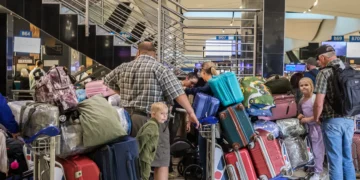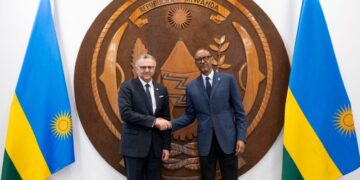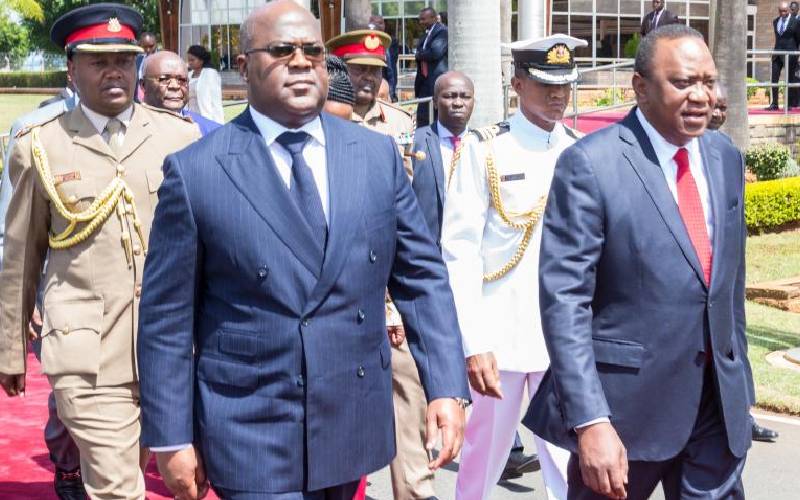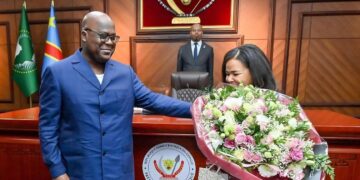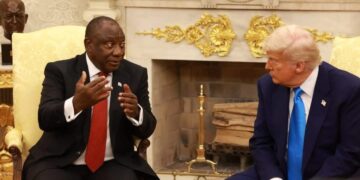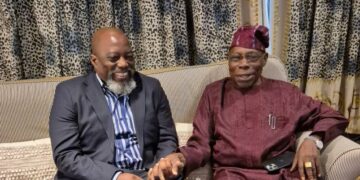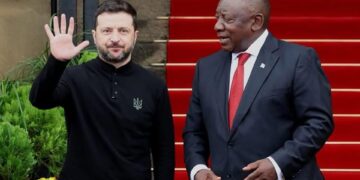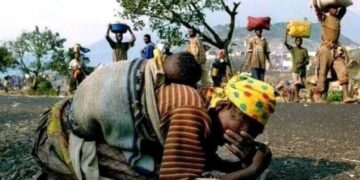The decision, announced via a post on social media platform X, underscores the growing tensions between Washington and Pretoria. “South Africa’s Ambassador to the United States is no longer welcome in our great country,” Rubio stated. “We have nothing to discuss with him and so he is considered PERSONA NON GRATA.”
Who is Ebrahim Rasool?
Ebrahim Rasool, a veteran South African diplomat and politician, had previously served in Washington and was reappointed as ambassador, presenting his credentials to then-President Joe Biden on January 13. According to the South African embassy’s website, this marked his second term in Washington, reflecting Pretoria’s confidence in his ability to manage U.S.-South Africa relations.
However, his tenure has now been abruptly cut short, signaling a serious diplomatic rift between the two nations. Persona non grata status is the most severe form of diplomatic censure a host country can impose, essentially forcing an envoy to leave.
Deteriorating U.S.-South Africa Relations
Relations between the United States and South Africa have been on a downward trajectory since President Trump’s administration slashed financial aid to Pretoria. The move was a response to South Africa’s controversial land expropriation policies, which Washington viewed as economically destabilizing and potentially discriminatory.
Another major point of contention has been South Africa’s stance on the Israeli-Palestinian conflict. The country recently took Israel—Washington’s key ally—to the International Court of Justice (ICJ) over alleged genocide in Gaza. The case, which has garnered global attention, further strained ties with the U.S., which staunchly supports Israel.
Rubio’s move to expel Rasool is widely seen as part of a broader realignment in U.S. foreign policy under Trump’s leadership, emphasizing stronger ties with allies like Israel while taking a harder stance against countries perceived as adversarial.
Implications of the Expulsion
The expulsion of an ambassador is a rare and serious diplomatic action, likely to provoke a strong response from the South African government. Pretoria may retaliate by taking reciprocal measures, such as expelling the U.S. ambassador or restricting diplomatic engagements.
Furthermore, this move could accelerate South Africa’s pivot toward alternative global alliances, including BRICS partners such as China and Russia, with whom Pretoria has deepening economic and political ties.
As the situation unfolds, the future of U.S.-South Africa relations remains uncertain, with analysts warning that the rift could have long-term consequences for trade, diplomacy, and geopolitical alignment in Africa.


